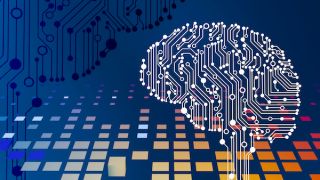Artificial Intelligence
How to Stop AI From Rewiring Your Brain Without Consent
Is AI wiring your brain for its own ends? Find out what you can do.
Posted July 1, 2024 Reviewed by Michelle Quirk
Key points
- In the attention economy, people use media more than 7.5 hours daily.
- Algorithms are designed to shape behavior, which makes us more passive and predictable.
- Mindfulness rewires the brain for self-directed behavior and creativity.
We live in an attention economy. That's no surprise, given how recent statistics show that the average daily time spent with media in the United States is 454 minutes, or more than 7 1/2 hours a day. By itself, that might raise some concerns. But perhaps more worrisome are the thousands of hidden algorithms used by artificial intelligence (AI) in our devices and apps to monitor us, as well as to shape and rewire our brains.
For example, I've seen young clients in my office (as well as adults) who were compulsive users of online pornography that was damaging their lives and relationships. If you doubt that "machine behavior" is influencing you, an article in the journal Nature described the myriad ways that algorithms are ubiquitous.

Ubiquitous Algorithms
Algorithms are used in credit scoring to make loan decisions. News and websites use algorithms to determine what political information to feed you. (And what not to show you.)
Algorithms are used by common programs, from ride-sharing apps to travel apps that look for traffic patterns. In fact, algorithms are often layered within algorithms—hundreds of them enfolded within others.
Do the algorithms in apps make things easier? In many cases, yes. But consider, also, that algorithms can make us more passive and predictable. That's because they are designed to hold our attention for the purpose of reaching their own goals and ends for which they were programmed.
Some apps are so good at keeping your attention, that the designers of these apps keep their algorithms secret! Human brains and human behavior, it seems, are pretty easy to program once algorithms identify our tendencies and what we respond to. And, because we're online so often, the algorithms can run multiple tests until they determine exactly what works—whether that means getting us to buy another product, take yet another online language class, or get behind a predetermined cause or candidate.
How to Stop From Being Programmed by Algorithms
If you've read this far, rest assured that I didn't use an algorithm to keep you engaged! I believe you've read this because you are alive, and being alive is neither boring nor predictable. Being human means you are meant to be creative and joyful! This is the essence of free will and setting your own intentions and goals.
I'm guessing there's one more very good reason you've read this far—because, honestly, who wants to be used, manipulated, and pushed around by the hidden agendas of others? I don't. Maybe that's why I've migrated to mindfulness... yes, that's what can prevent AI from programming your brain and behavior without your consent. That's because mindfulness changes the moment-by-moment relationship you have with everything—both externally and internally.
Mindfulness means being present, alert, and awake to what is happening. It means you are open, self-directed, and adaptable, as opposed to being closed, passive, and predictable. Here are two quotes worth absorbing:
“We need to supercharge our curiosity, adaptability and emotional intelligence while upholding the virtues of empathy, humility and self-control.”
–I, Human by Tomas Chamorro-Premuzic
“Imagination is more important than knowledge. For knowledge is limited to all we now know and understand, while imagination embraces the entire world, and all there ever will be to know and understand.”
–Albert Einstein
Computers speed us up. They can make us impatient, wanting to Google answers so that we can be right, rather than reflecting, listening, and understanding others. Our digital social connections often cause us to miss out on the basic elements of humanity, such as experiencing others through touch, gesture, and posture.
Then there's this: We can be part of a group, but lack the true meaning of humanity, which the Merriam-Webster Dictionary defines as, "compassionate, sympathetic, or generous behavior or disposition: the quality or state of being humane."
Mindfulness comes from the Sanskrit word sati. The original meaning of sati is self-remembrance and self-recollection. In other words, it is to reclaim the fragmented parts of yourself in order to become whole. The whole self will never be revealed when it exists in the shadow of an algorithmic master. With mindfulness, you can pull your own strings.
Or, as the Buddha said as he lay dying, "Be a lamp to yourself."
There are many wonderful ways to steep yourself in mindfulness. For example, how many of your breaths did you notice while reading this post? Start noticing your breath, the body, what you think moment by moment, and how you react to onscreen images and prompts. That's as good a place as any to start!




